Balanced, Deep, Easy to Play – You Can Only Pick Two!
February 1, 2012 by warzan
Balanced, Deep, Easy to Play - Pick Two!
In engineering there is a concept called the Project Triangle where between the three project attributes, Good, Cheap, Fast - you can only ever pick two.
It seems to me that the same thing basically exists in game design the attributes are...
- Balance (How accurate are the rules do they cover the possible events)
- Depth (How customised can the game be and how many options are available, generally more options and customisation lead to more potential for narrative driven games)
- Ease of Play (Are the rules easy to pick up and play, are there more tables, charts or sub events or FAQ's that have to be considered)
... and I think its a case of pick two. The sweet spot in these cases is almost impossible to find because everyone has their own opinion on what is fun!
40K has for a long time veered towards Balance/Depth where it has so much depth that a lot of rules and FAQ's are required to allow it to function.
Warmachine has perhaps a little less depth which has allowed it to drift towards the Balance/Ease of Play side of the triangle.
Infinity has certainly moved for the Depth/Balance spot and although the basic rules are easy to play there is no doubt that there are a lot of rules/elements.
You could probably plot somewhere in the triangle any game you can think of, but the crux is you're not likely to find any that will exist dead centre.
Layers give Substance, Substance breeds complexity
All the wargames we know and love, have more often than not evolved from much simpler rules sets, some went on to become very complex and were then scaled back. However, all games will add layers of substance over time, like that new faction that must have a different play style, or the introduction of magic or aircraft. Some games will allow you to customise individual units and even models... as the more personal your experience is... the more likely you will stay hooked.
All of these layers will ultimately have an effect on the rules, which sooner or later will have to reflect the customisation or new addition to the game.
The difficulty is when you add rules, they have a knock-on effect on other rules.
Take a very crude example:
- You have 16 armies...
- Each army has on average 20 units...
- Each unit has on average 10 special options (weapons, magic, special rules etc.)...
- Now your core rules has (at least) 150 entries and you now have a whopping 480,000 possibilities!
Of course that is a very crude example, as some rules never interact... until they do!
On top of that there is no current software platform (that we know of) for tracking and mining rule sets for issues... yup... its all done in the minds of a handful of developers and play testers.
So, say you have access to a pool of 30 people to test your game. That leaves you with 16000 possibilities per person (and most will always overlap to find the same big obvious flaws to begin with).
Contrast that to when the book launches and is looked over by 1,000,000 eager gamers and you end up with each gamer representing 0.48 of a possibility (again this is just a thought exercise, so the numbers are rough approximations just for illustration).
It certainly makes a case for crowd sourcing, does it not?
Until that is you drop personality and interpretation into the mix...
The world is made of tribes and our wargaming community is no different, we congregate in places like this and forums and blogs, and digest the thoughts of others, many just take those thoughts at face value and it then becomes their belief, we become tribes.
This means that we cant actually consider the 1,000,000 to actually be a million independent gamers, because there are huge tribes in there, that may or may not have their own 'shared' opinions.
If it was just a case of spotting errors it might still work, but opinion always comes into play and opinions are very subjective... for every person that thinks A you will find one that thinks B and one that thinks Z.
So, you must then consider the final opinion... the only opinion that really matters perhaps? That of the game developer.
I feel that their opinion is the only one that matters, because we must rely on them to execute their vision. Some of us will like it others will not, but we hope at least, that the system will be coherent and not a hodge podge of conflicting ideas.
So the next time you think 'What are they doing this rule sucks its sooo stupid and so easy to fix', spare a thought for the 479,999 other little possibilities.
Many folk on the interwebs seem to think game flaws are easy to fix (most just focus in on a couple - but everyone's couple is different) any thoughts on how we actually get closer to the centre of the 'Balanced, Deep, Easy' Triangle?
Warren




































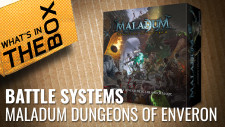




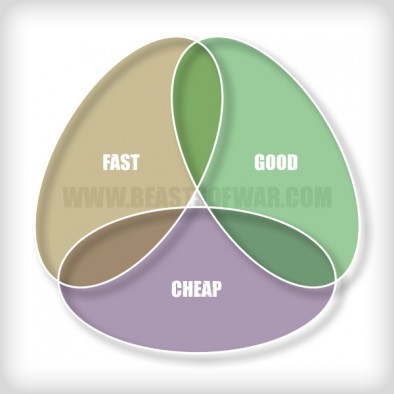
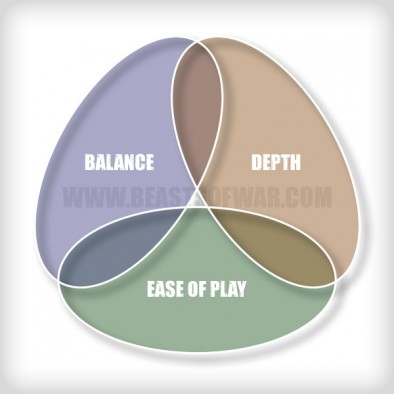


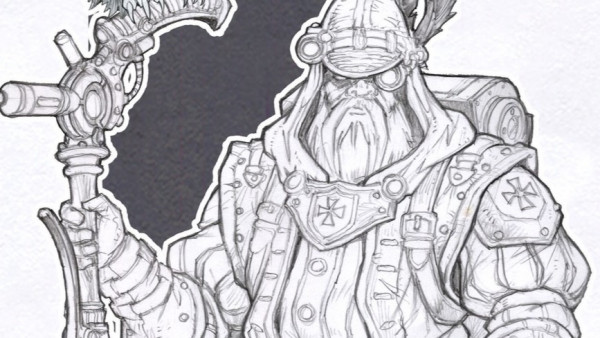

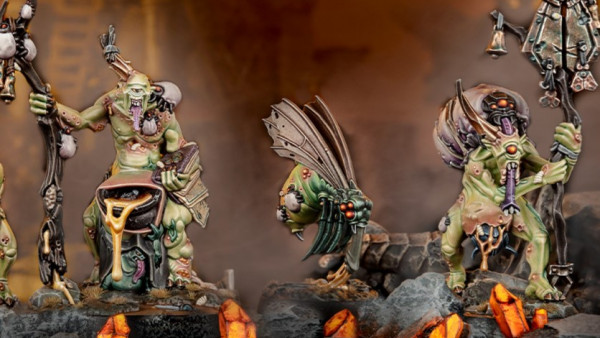
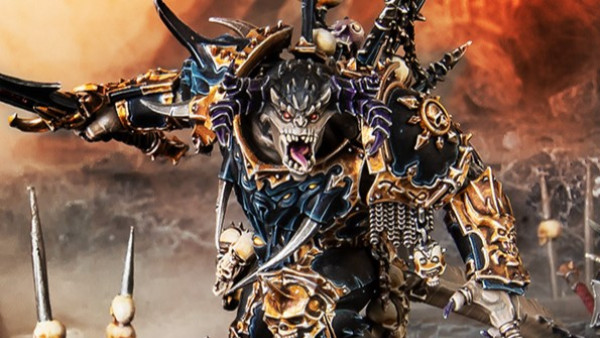

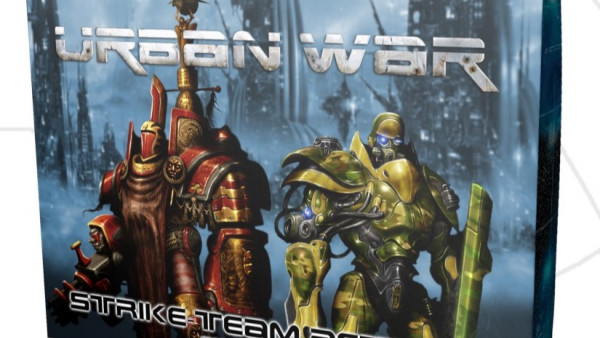
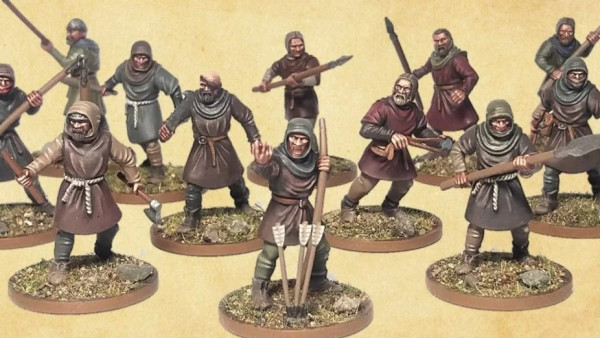

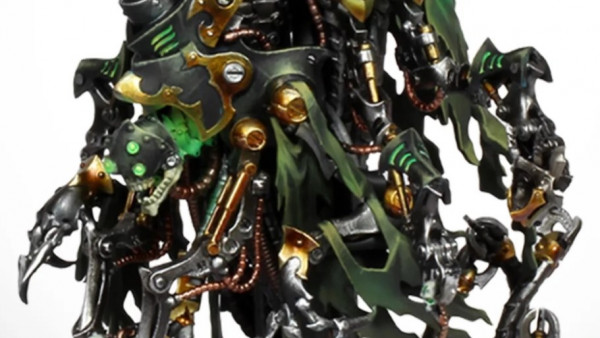







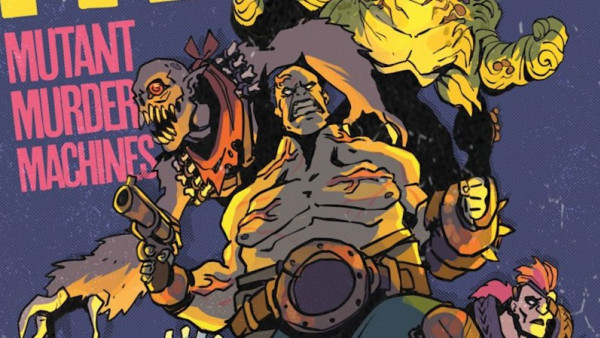
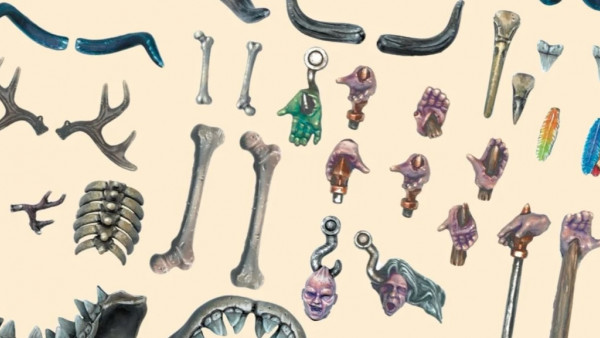






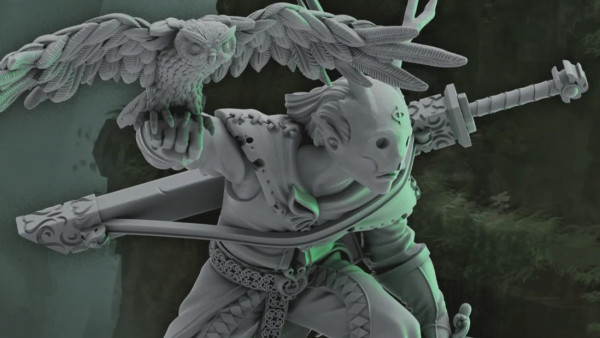
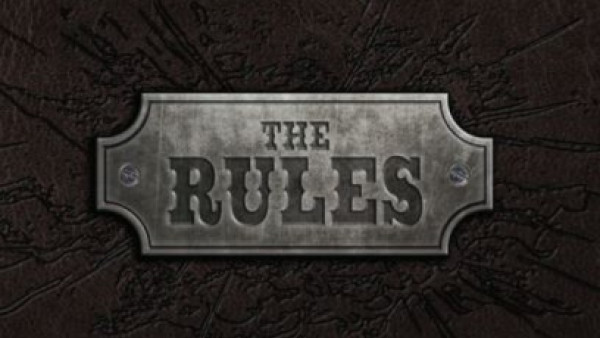






Silly Warren…lovely post but you have forgotten the rule no 1- whatever I say it should be, is correct. Failure to comply with my logic is a terminal issue 😉
I’ll pick Balance and Depth. Sod simplicity if I want that I will play 9 men’s morri…. i mean C.O.C.K.
😀
we deal with this paradigm daily in the IT world. The problem with your analogy is that GW is not a gaming company like TSR used to be. They are a model company that uses a game platform to sell more models. This is what they tell their share holders on a frequent basis. Game balance, and especially tournament balance is not a concern to the executive team that. Its simply, have we moved X amounts of units over Y amount of time and covered the cost of said units in order to make the share holders happy. Good article… Read more »
Well while your view has obvious merit, I do see a problem with your perspective concerning the analogy. TSR is at best today a name tag on a utility closet door where three guys armed with a lap top dwell inside. The closet however is located on the wizards of the coast wing or hall way. Deep Deep inside The Hasbro super slam structure… It is correct to use all games as an example, in the listed article, they are all selling something which I don’t have issue with as long as what it is has value and is what… Read more »
A vision in the hands of a genius who has a lot of love to give, can go a long way, even if people originally dislike the initial direction. If he’s good enough, he can convince people to come over to his side.
*as a side not, I swear 40K was dumbed down and pushed into an “ease of play” area, with the last few editions. I swear it was more complex when I played it in my school days.
Yes I think it moved horizontally across the graph, kept and added to its depth, made it easier to play, but as a result left more room for ‘debate’ and cheese hunters.
Not a bad thing in of itself. Having read the article again i think the title could have been… You Can’t Please Everyone!
Or: ‘You can please some of the internets some of the time…’ 😉
The other side of the argument or debate would be how everything in the pc game world mmorpg plays like and looks like World of Warcraft.
They say that even D&D 4.0 plays like table top WOW with loss of originality or the ability to create something unique, due to the same process as brought out by article.
Which killed the online push or at least brought it down a bit along with the advent of console gaming.
Do we actually see the same ripple effect concerning 40k ???
This is a fantastic article I enjoyed it very much 🙂
What about Everquest?
I’m in the camp of Depth and Ease of Play myself. I love to have a story driven game, be it skirmish or on a grander scale and Depth means you can get the most from a game. If you have some form of progression, or indeed individuality within your armies then it can raise the bar in terms of just how long a game stays in your mind. This is something that I think Warhammer has done so well in this latest edition. In terms of Depth it has a mass of options between armies and within the game… Read more »
Malifaux has it all for me, it’s cheap, fast, fun and all the terrain and mission rules they give you give an almost endless supply of depth. The schemes and strategies are a great mechanic to Malifaux so they provide depth, it is character driven with an awseome story and it is really cheap and fun to play. Some people think neverborn are overpowered but they really aren’t since the Nekima double take list has been removed and Pandora cannot use incite/pacify on her own crew. I would like to point out though that with cheap, I think it should… Read more »
Chess might be a game that comes close to the sweet spot. Its a simple game but hard to master.
Ah chess, the only game that I can remember what all the pieces are and do, yet am even more so terribly useless at playing lol
Maybe there could be a dice driven version based on more chance so I could actually have a chance of winning.
Scratch that, the Dice Gods hate me lol
Not that customisable though ….
Knightmare chess, Shuuro, Turanga, countless variants…
What do you mean, “not that customisable” ?
I totally agree, there are scores of variants. It would also be a cool observation to also add that I bet your best war gamers out here to date are also well versed in chess as well.
My dad passed down to me, a hand made chess set from Greece he picked up while serving in the navy. Many many years ago made from marble two types brass and silver. it appraised for 28000 dollars 10 yrs ago. May snap a photo some time and post it for you guys.
It’s one of these questions where there is no right answer. It’s like painting miniatures. Do you spray, dip, shake, done or do you lovingly personalise every one picking out the slightest deatils, base them well, etc. You’re trading off time/quality. Perhaps money too because with a fancy airgun you could probably do regiments to a reasonable standard fairly quickly or perhaps not so nice but faster is army painter sprays with dip but the cost of all those can’s mount up… Anyway it all depends on what matters to the individual painter. I’ll never be a dipper but I’ll… Read more »
Its an interesting spin on the model Warren. It is possible to hold onto all three if you study anything in the area of Quality Project Management. http://z15.invisionfree.com/joegamesaga/index.php?showtopic=196 I put a post on my forum only yesterday regarding The Cathedral and the Bazaar which I think is exactly what your describing. The basic concept is that when you share your code, or in this case rule set publicly to the world, all the problems and exploits become shallow and fixed immediately as opposed to secret in-house creation of a rule set. Case and point to this model, KoW. Although KoW… Read more »
True, it should be like a wiki/repositories were you can commit your changes in different branches and as you say report issues.
The Best ones are indeed those that you can pick-up & play with lets say.. A free quick-start ruleset but have an actual core rulebook which focusses on balance/depth… 40k is one of those that have been created for ‘depth’, but looks like a lot of things are in essence to simple that it takes away the balance… Main example is off course cover, were the rulebook goes on and on about stuff, but in essence it’s just: 4+ cover when you’re in anything that’s not the table itself &r roll 2D6 to move through it…. Which isn’t balanced at… Read more »
Interesting article Warren.
Maybe it is worth remembering that different systems offer different variations in the mix so that there is a game for everyone. Trouble is that we do tend to want everything from every game?
In fact there is a lot of ways to calculate the correctness of a ruleset ( completitude no, it would probably be impossible because you never no what you could have, need or happens in the future. It could be done simulations to see if there is very common holes but the tricky ones that have a low probability of happens in a game are very difficult to get (driven simulations could improve it… but it won’t give any certainty that they are perfect rules). ) There are many ways to do it, one is using knowledge bases that represents… Read more »
Sounds like someone has been studying production systems 😀 I have to say not a bad idea at all! Since reading this article I have found myself drawn to dice probability, which I think if done correctly would nullify most of the logic issues in the rule set as all models are structurally balanced. I think this video captures the conflict perfectly
http://www.youtube.com/watch?v=wex1Bn2Xodk
Although im left to wonder if the game is too elegant will it be as fun…
Warren are you mad? 40k in the balance camp?? warmachine outside of the depth camp??I do not agree at all with your views on the positions of the games. I believe 40k is on the ease of play and depth camp forfeiting some balance to make each codex cool and unique. large FAQs represent a lack of balance more than depth in my eyes, especially when they tend to leave one or two questions unanswered. warmachine feels to be in the balance/depth camp, using lower model counts to compensate for speed and ease of play. The FAQ/errata for the entire… Read more »
Warren are you mad? – Erm… Yup!
40k in the balance camp?? – 40K is in the Depth+Balance Camp Depth because there are probably close to 800 pages of rules throughout the system +faqs etc and customization right down to individual weapons on models.
warmachine outside of the depth camp?? – There is little to no customization of units in warmachine (i.e. wargear etc) so its built around a premise similar to paper scissors and rock.
Don’t take my words as an insult either as there is no right and wrong, but they are a reasonably accurate observation of the systems. 🙂
Lots of rules dose not mean they are balanced rules, just that there is a whole lot going on. I see more options, armies, and rules in general as a sign more of depth than balance. It is the quality of the rules (from a strictly analytical standpoint, which is more enjoyable is subjective) as a greater sign of balance. It’s fine if you disagree, but I’m having a hard time seeing where your coming from my friend. I would argue that if your core rulebook has over 50 pages of just rules then the game is probably solidly in… Read more »
I think what this goes to show is qualities like “Depth” and “Balance” aren’t objective but subjective qualities in themselves. Even in the orginial if you think of “Good” and “Cheap”, to a multimillionaire a Bentley might be both good and cheap and to a, shall we say, ‘more challenged’ player snap might be an incredibly deep game. It all depends on your individual frame of reference. Similarly for Warren part of the depth might come from the richness of the fluff and how that translates to the rules where as to Darrell fluff be damned! The depth likely comes… Read more »
I believe 40k is on the ease of play and depth camp forfeiting some balance,
I would say that most newcomers would disagree that 40K is easy to play. Also just because i have placed a game in the balanced part of the triangle, that doesn’t mean they have achieved balance, but that they have an expanding rule set that is trying to maintain a balance. 🙂
Out of curiosity, what would you say are some key factors in a ease of play/depth game? Are there any others out there in that camp that you could point out what you feel puts them in that part of the triad?
Also, on an unrelated note, do you feel good balance within a rule set leaves more room to introduce depth? It appears to me, the better your rules are balanced the more you can add before they are weighed down.
Remember the triad is about objectives not outcomes, its about where your resources are expended.
If you want a game that is universally easy to play, then you will have to sacrifice either balance (if you want a lot of options, customization or narrative opportunities) or depth (if you want the game to have clear outcomes without the need of a referee – or GM)
I’m pitching the idea that trying to set all three as objectives is unpractical as when all three are being worked towards, they start to cancel each other out.
I think we might just have reversed definitions of depth and balance 😛
any thoughts on how we actually get closer to the centre of the ‘Balanced, Deep, Easy’ Triangle?
I don’t think you can as everybodies happyzone on your diagram is in a different place. What I would call the middle is not where you would consider the middle.
You say 40K is veering towards balance & depth, I’d say it is firmly in the ease of play camp.
Go open-source but make sure you have an active leader who is prepared to make decisions and admit mistakes.
only 99979 zombies to go
I think where a lot of designers go wrong is in trying to be all things to all players. Balance and depth stem from genre. Ease of play, I think, stems from how loyal you remain to the genre. The more you mix it up, the more elements you try to add, the farther you get from your original vision. What happens is, most designers keep grand plans in their mind, of a universal system that will enable multiple diverse factions with radically divergent styles. They hope to create a template that can be dropped into any genre, based on… Read more »
Agreed, but I think you can have general principles of a game (Warhammer and 40k share statistics and similar table mechanisms/rules for example) and then chop and change them for whichever genres you wish. Of course a mass-battle game will be different to a skirmish game, and a fantasy setting will differ to a modern or sci-fi one, but the underlying structure could be the same – like the paradigm’s used in story telling. This would allow ease of play, through familiarity (which is what the older editions of 40k/Warhammer did quite well), whilst building on the background by adding… Read more »
Saturday night I’m planning on having a couple of beers and maybe few glasses of Red as well. I strongly suspect I will come up with the definative answer to this teaser then.
If you’re like me that point is reached just after the ability to type/write/speak is lost 🙂
If your like me you will still believe you have these abilities only now they are so greatly enhanced you will have almost attained a Buddha like insight.
When I think of that middle area, I think of Classic BattleTech. Sweet game…you can learn how to calculate your shots in a few minutes. Tech levels can take you as far as you want to go in terms of realism..like wind affecting your shots…terrain catching fire/being destroyed. It’s well balanced, but a lucky shot can kill your pilot. Lots of room for narrative scenarios…and tournament play. The more I play BattleTech, the less I like other sci fi battle games, but that’s just me. Did i mention that the game scales well…and is much cheaper than GW and PP?
I think the sweet spot is very attainable by games, maybe not as easily for war games. Games that appear to easily achieve this are ones were you build or add to the board as you play. Like Go, which is a war game, Carcassonne, a tile based game that expands as you play, or Dominion, a build your deck as you play card game.
If the game is big enough you should be able to find an area that you and like minded people are happy to consider middle.
In gaming terms they don’t get much bigger than 40K which is probably why a lot of people play it even though they are unhappy with some aspects, you can always find enough fellow gamers who want to play and enjoy the game the way you do.
OK, This just hit me and correct me if I am wrong… I am reading responses most of which are caught in the part 2 of article that if it was mine would be titled “THE PLACEBO EFFECT” and would be a follow up. Most people are falling short where the article clearly states that the pendulum swings based on personal preference as to where any one game may find itself. However, The formula presented must work or there would be no game or attraction that is note worthy to it. Therefore Warren clearly states in example that his travels… Read more »
Disclaimer: There may be a nugget or two of truth within this post. I apologise in advance if you feel it has wasted your time (if you decide to read it that is). If you do I hope you enjoy at least a line or two I’ve been tinkering with my own rules, on and off, most of my life (although this has never really culminated in a complete project – yet). I think a key issue is motivation – not just for games developers, but also for players (yes I think we should take responsibility for how we… Read more »
This article would of been cool to hash out on turn 8 is that coming back any in the new year?
Good idea
Turn 8 returns in march, but perhaps we can run something simple before then, let me think about it and brainstorm an idea up with the team.
http://www.youtube.com/watch?v=-FucbvoFFy0
LOL ,awesome there are so many directions we can go with this I hope it transpires.
So warren where does DBA fit on your triangle?
Thats an interesting one, I don’t play DBA, but if I had to guess… right at the very top point of the Triangle 🙂
Hi Warren. I can see what you were sugesting about different games targeting differnt type of gamers, with different styles of play. However, I do not think the ‘catagories’ you use are the best to describe ‘game development dichotemies.’ Could I suggest an alternative view? If we use ‘depth of game play’ as the variable .(To define the range of gamers the game is suitable for.) EG.(Using commonly known games.) Shallowest. =Snap or Snakes and Ladders. Deepest , Bridge or Chess. Writing a game for 5 year olds to play for 5 to 15 miniutes. Does not required the depth… Read more »
Warren Reading lanrak’s reply just gave me yet another avenue of thought in reference to your article but will refrain in the hopes of you guys taking this article to the next level and going live cast with it. Which would give us a great smash up of ideas and other possibilities to explore. However, even if it doesn’t happen it is rare to have a piece of journalism snatch you up and at the same time give you the keys to even drive for a spell. This article has done just that, as you can see by the quality… Read more »